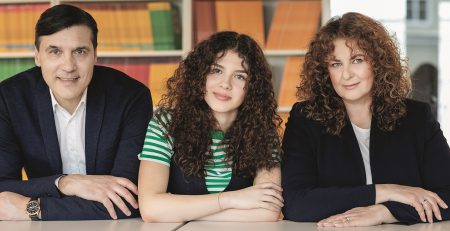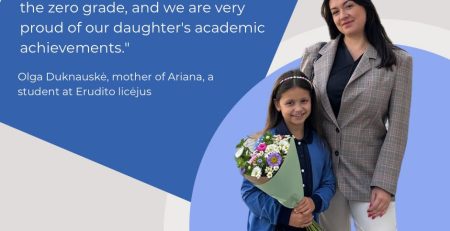Psychologist explains how we prevent ourselves from focusing and why multitasking doesn’t work
A lot of people find longer and uninterrupted focus a real challenge. People tend to think that with the introduction of television and, especially, of smart phones their ability to focus degraded significantly. Rūta Žiaunienė, a psychologist from ‘Erudito licėjus’, however, says that it’s only a myth.
‘We cannot state that our mind and cognitive functions weakened due to television or smart phones. Of course, they distract us but they are not the greatest stimuli. It is our mind that is the major trigger. Even though we are surrounded by deafening silence, most of the time it is ourselves that distract us,’ says she.
We are responsible for our failure to focus
By referring to the research conducted by scientists L. A. Dabbish, G. Mark and V. M. Gonzalez, the psychologist of ‘Erudito licėjus’ notes that it’s us who create almost half of the triggers that distract us. ‘We often feel anxiety, fear and insecurity, and we want to escape them. Technologies which help us shift attention from ourselves and our feelings become a salvation. Unfortunately, the feelings don’t go anywhere, they are only pushed away,’ tells R. Žiaunienė.
This way we entangle ourselves in a vicious circle: we seek entertainment because we feel negative emotions, they show up and force us to look for ways to distract ourselves again. This way, focus is constantly decreasing.
‘Humans did not lose the ability to focus, they simply do not drill this skill. We find it difficult to postpone satisfaction of impulsive wishes, we lack determination to do something here and now. It’s the same with reading this text – you may need to resist a desire to check your phone messages or social media,’ notes R. Žiaunienė.
Why doesn’t multitasking work?
Do you learn, count, take notes and think what you are going to have for breakfast tomorrow? Do you think that you perform all these actions and process information at the same time? It is not the case. Neuroscientist U. Neniškytė claims that our brain is incapable of performing two or more tasks simultaneously.
‘Our brain is unable to multitask, i.e. perform several tasks simultaneously. It can only jump from one task to another. The term itself is derived from a dictionary of computing and is used to refer to the operations of machines which can process two or more tasks simultaneously. Imagine that you have four or five applications running on your computer at the same time. We think that they run simultaneously but actually they switch between each other very quickly,’ says R. Žiaunienė.
She underlines that we, similarly, jump between different tasks but we are not as good and fast as computers. This takes some time and we cannot focus on any specific task in-between. Thus, a key to focus is to carry out one task without interruption as long as possible.
Learning to focus
Attention coaches and teachers often suggest advice on how to focus and become more productive. The most popular among them are daily plans or task lists, regular breaks, time set for checking phone or social media messages. ‘This problem is encountered by neurotic people – lists or time set for checking messages may only increase tension and cause anxiety. Even if you decided to refrain from frequent checking for messages, you will still keep thinking about it and it will be more difficult to focus. So, these tips, although they are good ones, do not have a magic effect on solving the problem,’ says the psychologist. How do we learn to distract us less then?
‘When I consult the students at ‘Erudito licėjus’, I always advise to start with sitting or standing still, I teach focusing on one object, breathing, for example. To feel how air enters the nose and exits through the mouth. Or watch a cup on the table – note its colour, texture, bends or reflections. Focusing on breathing or the cup for 2-5 minutes will be really difficult at first. When you feel that your thoughts start wandering, you need to go back to the object you are watching,’ advises R. Žiaunienė.
She states that all mindfulness-based techniques, meditations organised for people of all age groups serve as a massage or health camp for our attention. ‘It is important to engage in some activity and start practicing it step by step, even if it is only 2-5 minutes a day. When you want to distract yourself, you will have stronger muscle to resist such invitations. It takes time and it’s not easy,’ says the psychologist.
She points out that activities which require accuracy of hands and fine motor skills teach us to focus; we also foster our attentiveness when we perform them. When our hands are busy, we don’t want to take a phone.
‘Our focus is largely caused by motivation, inner desire to be rewarded. Technologies do reward us – all comments and likes on social media stand as the currency of that reward. Work that we completed, however, and our accomplishment can also serve as an alternative reward. Our mind does not work as a computer, it is an extremely complex system which cannot be optimised, we cannot erase system errors, we need to learn how to be with our thoughts and notice them. When we learn that, we will be more attentive,’ says ‘Erudito licėjus’ psychologist R. Žiaunienė.














